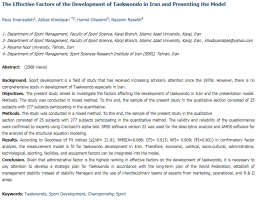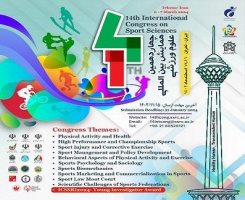Dr. Behnam Naghipour Givi, a faculty member at the SSRI, discussed identity, social cohesion, and discrimination in international sports law in a knowledge-enhancement session titled "Activism of the

He began by addressing a question on why the Zionist regime is often treated exceptionally and exempt from certain international sports regulations. Naghipour Givi analyzed Israel's role in the global order and its interaction with both left and right political currents, asserting that Israel has been positioned as a shield between Eastern and Western civilizations to control countries and hinder progress in the Middle East.
He defined identity as an institution that answers the fundamental question "Who am I?" emphasizing that identity is not only an individual concept but also a connected social construct with various types, including individual, social, sexual, regional, ethnic, religious, and even team identity in sports.
Using examples from Iranian and worldwide sports, he explained that sports success and public perception of it acts as a catalyst for enhancing social cohesion and strengthening national identity. Even a powerful performance against strong opponents is perceived as success by society, regardless of the actual result.
Naghipour Givi cited his own and colleagues' research showing no significant difference in national identity perception among fans of different Iranian national teams, indicating wide pride among all ethnic groups, though he noted this pride requires ongoing nurturing over time.
He illustrated with examples from Spain, Lebanon, and Ireland how sports fandom intersects with ethnic, religious, and political identities, showing that sports coupled with social participation can either bolster social cohesion or deepen social divides.
Drawing on longitudinal studies from Germany and the Netherlands, he highlighted that sporting success tends to increase national pride and collective identity in these countries.
In conclusion, he emphasized that sports, especially football, have played a key role in fortifying national identity and social cohesion during historic moments like the imposed war. However, given the abstract nature of "national identity and social cohesion," these achievements require continual care and development through justice- and participation-oriented policies.
He stressed that genuine participation and the feeling of social justice at all levels are essential for preserving lasting social cohesion and national identity





Your Comment :